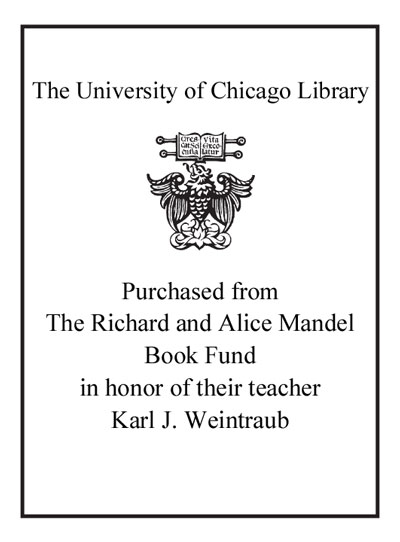Experience and the world's own language : a critique of John McDowell's empiricism /
Saved in:
| Author / Creator: | Gaskin, Richard, 1960- |
|---|---|
| Imprint: | Oxford : Clarendon Press ; New York : Oxford University Press, 2006. |
| Description: | x, 251 p. ; 23 cm. |
| Language: | English |
| Subject: | |
| Format: | E-Resource Print Book |
| URL for this record: | http://pi.lib.uchicago.edu/1001/cat/bib/5928982 |
Table of Contents:
- I. Minimal empiricism and the 'order of justification'
- I.1. Minimal empiricism: introductory
- I.2. Minimal empiricism: some initial difficulties
- I.3. McDowell's empiricism: overview and prospective
- I.4. The simple model of empirical content
- I.5. The 'order of justification'
- I.6. From the complex to the simple model of empirical content
- II. Experience and causation
- II.1. Causation and the complex model of empirical content
- II.2. The threat of Anomalous Monism
- II.3. Causation in the space of reasons
- II.4. Nature and supernature
- II.5. Rampant and naturalized platonism
- II.6. Realm-of-law causation and the Myth of the Given
- III. Experience and judgement
- III.1. McDowell's transcendental argument
- III.2. Judgement and freedom
- III.3. Knowledge and the opportunity to know
- III.4. Knowledge and infallibility
- III.5. Ayer on perceptual error
- III.6. Experience and self-consciousness
- III.7. The 'highest common factor' conception of experience
- III.8. McDowell's individualism
- III.9. Externalism and the individual
- III.10. Externalism and the 'order of justification'
- IV. The mental lives of infants and animals
- IV.1. Two species of mentality
- IV.2. Mentality and the transcendental argument
- IV.3. Objections to McDowell's account
- IV.4. Conceptual consciousness and the Private Language Argument
- IV.5. 'Not a something, but not a nothing either'
- IV.6. Feeling pain and feeling a pain
- IV.7. Mentality and conceptual sophistication
- IV.8. Two species of mentality revisited
- IV.9. Mentality and propositional content
- V. Diagnosis and treatment
- V.1. The ailment: Kantian transcendental idealism
- V.2. Sense, reference, and concepts
- V.3. Propositions and states of affairs
- V.4. Concepts and nominalism
- V.5. Wittgenstein and ultra-realism
- V.6. Ultra-realism and universals
- VI. The world's own language
- VI.1. Combining objects and concepts at the level of reference
- VI.2. Locating propositions at the level of reference
- VI.3. The problem of falsity
- VI.4. Truth and intrinsicism
- VI.5. Der Mensch spricht nicht allein
- VI.6. Epilogue: the unity of the proposition
- References
- Index

